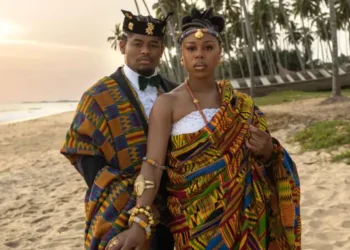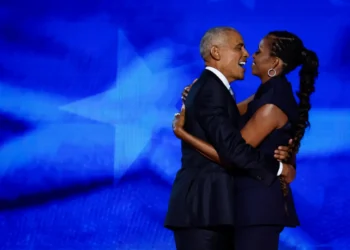The Oscars were last night and although Everything Everywhere All at Once swept through all of the major awards, there was still some hope that Angela Bassett would finally take home an award herself in the Best Supporting Actress category for her role as Queen Ramonda in Wakanda Forever. Unfortunately, that didn’t come to be with Jamie Lee Curtis taking home another win for EEAaO and now a lot of Bassett’s supporters are saying that the Oscars were fixed and that they’d never watch the awards show again.
Angela Bassett is obviously a remarkable actress whose talent and dedication to her craft have earned her critical acclaim and adoration from audiences all around the world. Despite her impressive body of work, however, she has still yet to receive this ultimate accolade of winning an Academy Award.
Her career spans over three decades and includes a range of memorable performances that have cemented her as one of Hollywood’s most respected and versatile actresses. Her breakout role came in 1993’s What’s Love Got to Do With It, in which she portrayed Tina Turner with such ferocity and nuance that it earned her an Oscar nomination for Best Actress.
Bassett has since gone on to deliver a string of powerful performances in films such as Malcolm X, Waiting to Exhale, and The Rosa Parks Story. She has also made a mark on the small screen with roles in acclaimed TV shows like American Horror Story and 9-1-1.
Despite her undeniable talent, however, Bassett has been repeatedly snubbed by the Academy. Many in the industry and among her fans have expressed outrage and disbelief at her lack of recognition, especially considering the caliber of her performances.
One possible explanation for this oversight is the issue of representation in Hollywood. For far too long, the film industry has been dominated by white men, both in front of and behind the camera. While progress has been made in recent years to increase diversity and inclusivity, there is still much work to be done.
Bassett’s experience is just one example of the systemic biases that have long existed within the Academy and the wider film industry. In fact, it wasn’t until 2002 that an African American woman, Halle Berry, won the Best Actress award for her performance in Monster’s Ball.
Another factor that may be contributing to Bassett’s lack of Oscars is the type of roles that she has been offered. As a woman of color, she has often been relegated to playing supporting characters or stereotypical roles that don’t showcase her full range as an actress.
This is a common issue faced by many actors of color, who often struggle to find meaningful and complex roles in a landscape that favors white actors and stories. Even when they do land roles, they may be overlooked for awards consideration because their performances are not seen as “Oscar-worthy.”
Despite these challenges, Bassett has remained a trailblazer in her field and an inspiration to aspiring actors everywhere. She has spoken candidly about her experiences as a black woman in Hollywood and has used her platform to advocate for greater representation and inclusivity in the industry.
In the end, while it may be disappointing that Bassett has yet to receive an Oscar, her legacy as an actress and as an advocate for change is far more significant than any trophy. Her performances have touched countless lives and her impact on the industry will be felt for generations to come.













